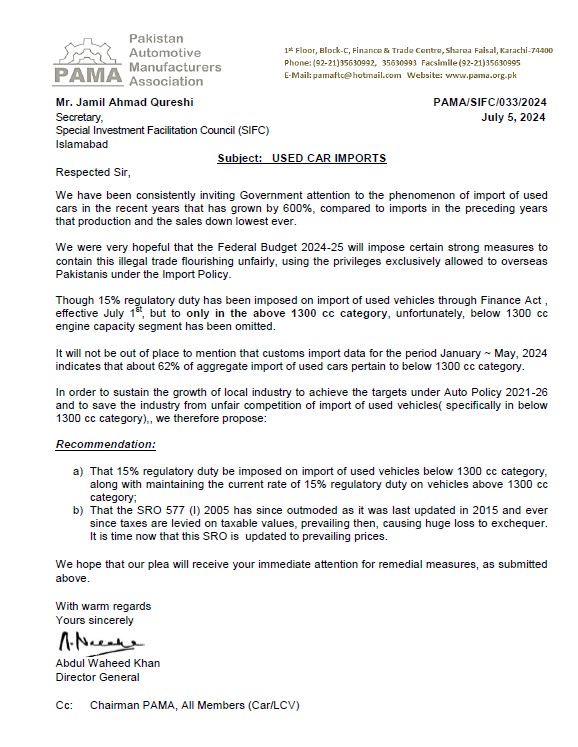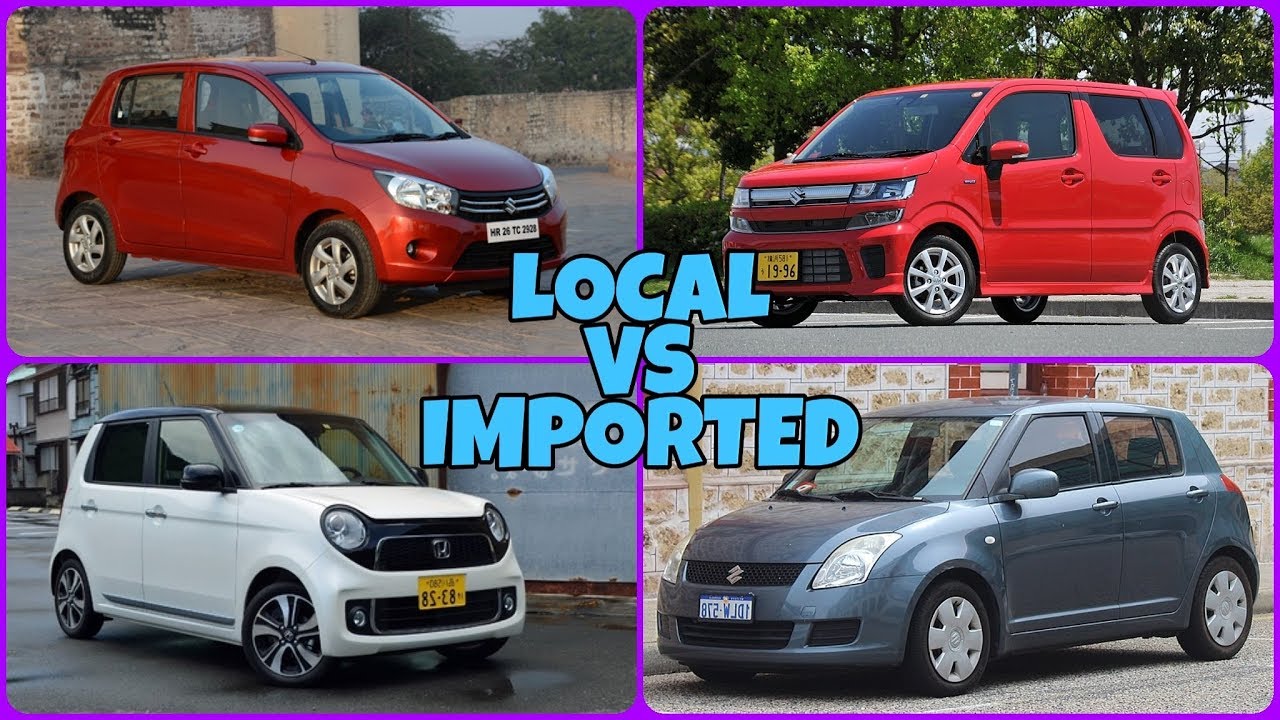The recent budget FY2024-25 has left people in shock and the aftermath of the decisions are still being felt since its announcement. While some people were happy with the recent budget (not your ordinary citizen), while others were not so much. A deeper examination in the automotive side of the budget uncovers a significant flaw.
While the introduction of a 15% regulatory duty on imported used vehicles exceeding 1300cc could appear like a win for local automakers. The Prime Minister is being urged to extend this obligation to cars with engines smaller than 1300cc by the Pakistan Automotive Manufacturers Association (PAMA)! This shocking development has presented some serious concerns, let’s talk about them shall we?
Duty On The Big Boys, And A Free Pass For The Under-dogs?
The recently imposed duty targets high-end imported vehicles. This segment doesn’t directly compete with the majority of locally assembled cars. But here’s the real twist: the duty completely overlooks the surging import of used vehicles below 1300cc, a category that has witnessed a massive 62% increase in the past two years! This segment directly competes with many locally produced cars, particularly the popular hatchbacks and sedans.

Why Would PAMA Push For Such An Agenda?
PAMA’s push for a duty on smaller imported vehicles paints a concerning picture. It suggests a focus on protecting their own interests, rather than the overall Pakistani automotive community. Here’s why this selective approach might be a red flag:
- Unfair Advantage for Local Manufacturers: A duty on smaller imported vehicles would undoubtedly push consumers towards pricier locally assembled options. This could be seen as stifling healthy competition, potentially leading to a lack of innovation and improvement in locally produced cars.
- Consumer Choice Ignored: The popularity of smaller imported vehicles speaks volumes about consumer preference. These cars are often known for their fuel efficiency, reliability, and affordability – factors that resonate with many Pakistani car buyers. PAMA’s push disregards these preferences.
- Questionable Quality of Local Cars: Many locally assembled cars have faced criticism for quality issues and outdated features. Instead of advocating for a duty, PAMA’s efforts should be directed towards improving the quality and competitiveness of locally manufactured vehicles.

PAMA Makes Its Case!
In a recent letter to the Prime Minister and other policymakers, PAMA Director General Abdul Waheed Khan shed light on their concerns. He argued that imposing a 15% duty on imported vehicles below 1300cc is necessary for the following reasons:
- Sustain Growth: PAMA believes the duty is crucial for the continued growth of the local industry. Not only this but for achieving the targets set in the Auto Policy 2012-2026.
- Fair Competition: Khan highlights the “unfair competition” posed by the surge in imported used cars, particularly in the below 1300cc segment. He argues for a level playing field to ensure a healthy competitive environment.
- Outdated Tax System: The letter points out a critical issue – SRO 577 (I) 2005, which defines taxable values for imported vehicles, has not been updated since 2015. This, according to PAMA, leads to a “huge loss to the exchequer”. As taxes are not reflective of current market prices. PAMA calls for an update to this SRO to ensure proper revenue generation.
Concluding Remarks
In the end, a healthy auto sector will help everyone—from regional producers to Pakistani motorists looking for dependable and reasonably priced cars. Customers need to speak up and want competitively priced, feature-rich, high-quality automobiles. As a result, local producers will be under pressure to enhance their products and develop a more customer-focused market.
The argument over the import tax on smaller cars emphasizes the necessity of taking a balanced stance. Although safeguarding regional sector is crucial, customer choice and business expansion shouldn’t be sacrificed in the process. Pakistan may develop a long-lasting automotive sector that benefits all parties involved.
Stay tuned for more automotive updates like these; this is your soon-to-be favorite friendly neighborhood gearhead Zayaan, Signing Off!





































